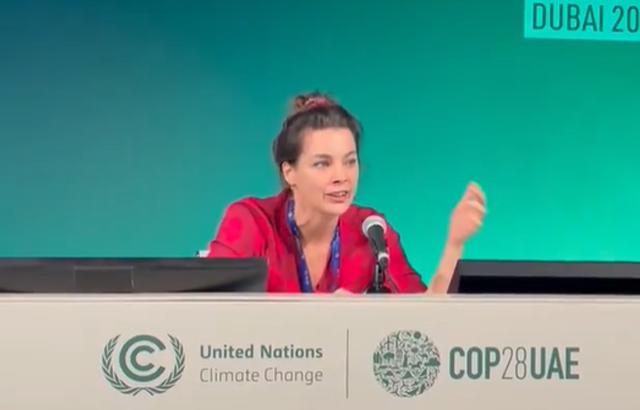
Climate change is an amplifier of inequalities. As the climate crisis intensifies, so does its negative impacts on the sexual and reproductive health and rights of women and girls.
Dr Heather McMullen, Senior Lecturer in Global Public Health at Queen Mary, researches the intersection of climate change and gender. For years, she has been working with the United Nations Population Fund (UKPA) to evidence the impact of the climate crisis on the sexual and reproductive health on women and girls.
Dr McMullen was one of the experts that Queen Mary sent to COP28 in Dubai, where she discussed her research during an event . Ahead of COP28, Dr McMullen sat down with Professor Tim Bale to discuss her research as part of Queen Mary’s sustainability series:
For example, we know that the climate crisis increases air pollution and heat, and this has a negative impact on maternal health during pregnancy – including links to premature births, stillbirths and other complications. There is also an increase in gender-based violence during extreme weather events. If countries don’t carefully consider the impact of climate change on women and girls, and work plan for these inevitabilities, then this could even further exacerbate existing inequalities for women and girls.
In October last year, the United Nations Population Fund (UKPA) and Queen Mary University of London published a global review .
The report examines the climate plans of 119 countries and whether they integrate access to contraception, safe birthing, and protection for women and girls from gender-based violence into their adaptation goals. Many countries have made commendable progress in highlighting sexual and reproductive health and rights in their Nationally Determined Contributions (NDCs), but a majority still fall short.
NDCs outline the efforts by each country that has ratified the Paris Climate Agreement to reduce national emissions and adapt to the impacts of climate change. These are submitted every five years to help indicate the voluntary commitments of countries to achieving agreed-upon mitigation and adaptation goals.
Building on the work of the global review, UNFPA and Queen Mary have published five reports that examine the integration of sexual and reproductive health and rights and related themes—including health, gender, population dynamics, youth, human rights, vulnerable groups, and participation – of countries from 2020 onwards. These five reports each cover one of the following regions:
- West and Central Africa
- Latin America and the Caribbean
- Asia and the Pacific
- Arab States
- East and Southern Africa
These reports will help countries meet their commitment made at COP28 to submit their next NDCs “at least 9-12 months in advance” of COP30 in Brazil at the end of 2025. The regional reports help guide stakeholders across each region to ensure that the next submissions of NDCs substantively reflects the intersections of climate, sexual and reproductive health and rights, gender-based violence and harmful practices – through impact, commitments, budget, and other critical actions.
